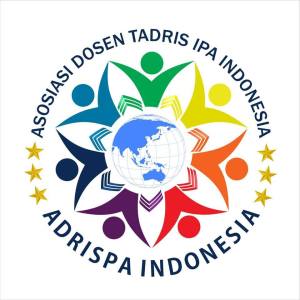COMPARATIVE SKILLS TO COMMUNICATE SCIENCE STUDENTS USING GROUP INVESTIGATION LEARNING MODEL GENUINE OBJECT AND NON GENUINE OBJECTS IN SCIENCE SUBJECT
DOI:
https://doi.org/10.21154/insecta.v1i2.2396Keywords:
Comparative Skills, Communicate Science Students, Group Investigation Learning Model, Genuine Object, Non Genuine ObjectsAbstract
Along with the times, humans are required to master the skills of communication, collaboration, critical thinking, and creativity. Communication skills become one of the important skills that must be mastered by someone. In this case the world of education plays a role in being able to train students to have communication skills. One of them is by applying the Group Investigation learning model assisted by Genuine Object, because with direct learning supported by real object media, students will easily make observations, and communicate everything they get. The objectives of this study are: 1) Knowing the difference in students' science communication skills with the Genuine Object and Non-Genuine Group Investigation learning models The sample used was one of class in Ponorogo District. Data used collecteddescriptive analysis were analyzed through descriptively quantitative and inferential statistics. The results showed that students 'science communication skills using Genuine Object Assisted Group Investigation learning models had an average value of 65.7 while students' communication communication skills using Group Investigation Non Genuine Objects had average values an average of 41.6. Communication skills of students using the Group Investigation learning model assisted by Genuine Object are better than Non Genuine Object. Based on the one tailed t test, the value obtained is - 3,27748. Based on the results of the study it can be concluded that the learning model of Group Investigation assisted by Genuine Object can improve students' science communication skills.References
Ardiana, N. 2018. Effect of the Use of Group Investigation Learning Models on Students' Mathematical Communication Skills. Journal of Education and Development, South Tapanuli Education Institute, 5 (2): 3.
Astuti, Y. 2017. Profile of Prospective Biology Student Candidates in Communicating the Results of Animal Physiology Practicum. Indonesian Education Journal, 6 (1): 3.
Gusti Ayu Putu Ary Krishna Dewi et al. 2017. The Influence of Group Investigation Learning Models Nuanced Outdoor Study on the Mastery of Class IV Science Knowledge Competence. International Journal of Elementary Education, Vol.1: 3.
Ika, YE (2018). Science laboratory based learning to train scientific communication skills of VII grade junior high school students, JIPFRI (Journal of Physics Education Innovation and Scientific Research, 2 (2): 8.
Ishartanto Qodry, I. 2017. Effect of Problem Based Learning Model Learning through Scientific Approaches on Scientific Communication Ability in Class X in SMA Negeri 1 Rembang. Journal of Physics Learning Research, 7 (1): 6.
Kartini. 2014. Application of Process Skills Approach in Biology Teaching to Know Student Learning Outcomes in the Subject of Ecosystem Class VII at SMPN 1 Talun. Journal of Scientiae Educatia, Vol.1: 8.
Kritiawati, RE 2014. Implementation and Student Response to Learning by Making Posters to Practice Student Science Communication Skills. Journal of Science Education e-Pensa, 2 (2): 1.
Lovita, R. 2017. Effectiveness of the Use of Concrete Objects Media on the Ability to Recognize Letters in Class III Cerebral Palsy Students in SLB Negeri 1 Bantul. Widia Orthoddactic Journal, 6 (3): 2.
Muharromah, TR, Fadiawati, N & Saputra, N. 2019. Effectiveness of Learning Based on Used Cooking Oil Recycling Projects in Improving Student Communication Skills. Journal of Chemistry Education and Learning, 8 (2): 3.
Mustain, I. 2015. Ability to Read and Interpret Graphs and Data on Case Studies in 8th Grade Students of SMPN. Journal of Science Educatia, 5 (2): 3.
Nurmala, SR, & Prianti, I. (2017). Improve communication skills and cognitive learning outcomes through the application of discovery learning. Journal of Biology and Learning Biology, 2 (1): 2-3.
Permatasari, R & Hendratno. 2014. The Use of Concrete Objects Media to Improve Writing Skills Description of Class IV Students at SD Negeri Krian IV Sidoarjo. Journal of Primary School Teacher Education, 02 (02): 3.
Rayana, A. 2018. Analysis of Science Process Skills of Students in Biology Practicum of Class XI IPA of SMA Negeri 2 Surakarta Even Semester of 2017/2018 Academic Year. Muhamadiyah University Surakarta. 3
Romdon, HF (2019). The use of authentic assessment to assess students' communication skills through a jigsaw model on environmental pollution material. Educational journal, 3.
Sari, NM &Eurika, N. 2017.Application of the Group Investigation Learning Model to Improve Student Learning Outcomes. Journal of Biology and Learning Biology, 1 (1) :, 2.
Suryaningsih, Yeni. 2017. Practicum Based Learning as a Means for Students to Practice Implementing Science Process Skills in Biology Materials. Journal of BioEducation, 2 (2): 5.








